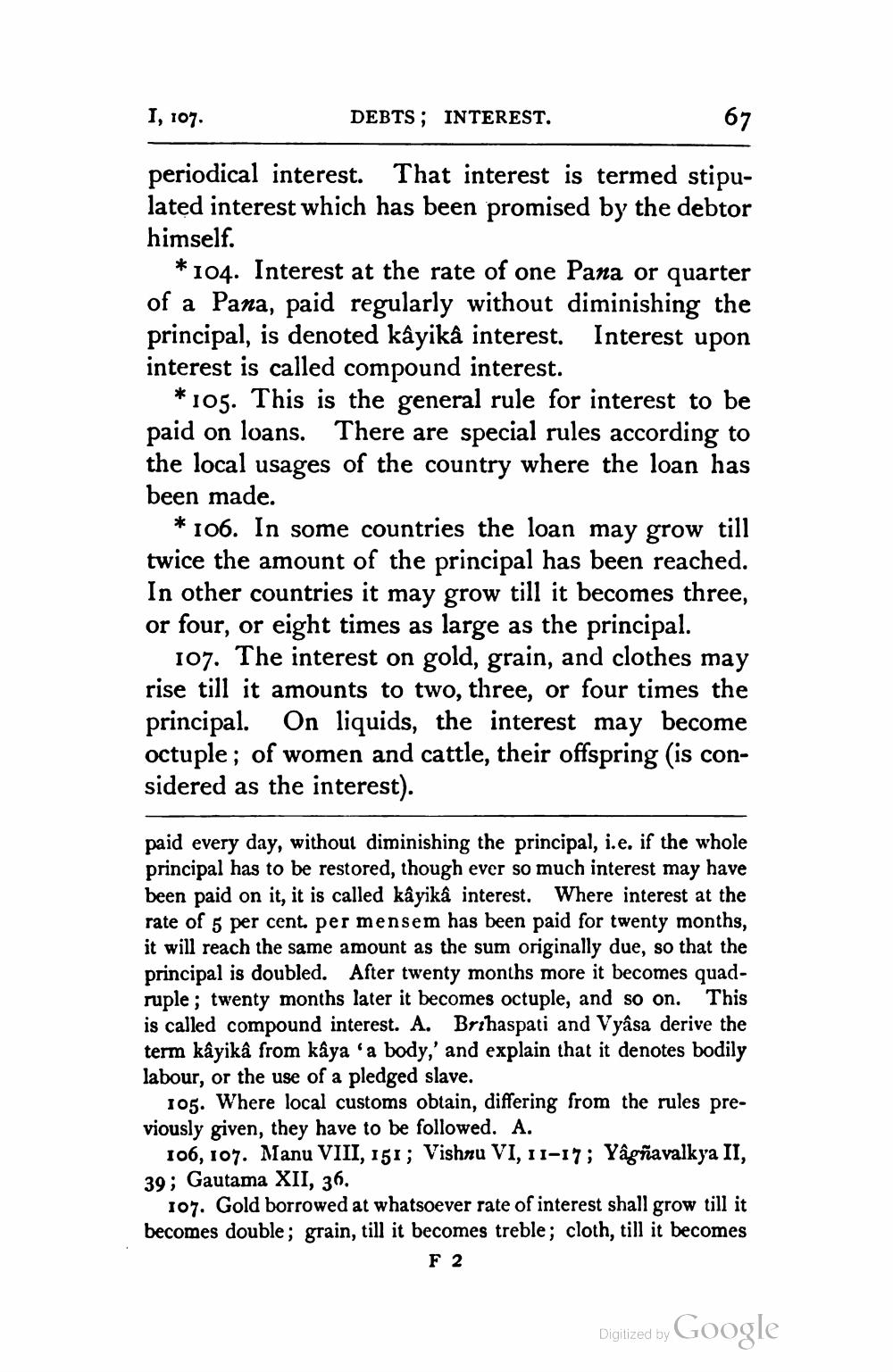________________
1, 107.
DEBTS; INTEREST.
periodical interest. That interest is termed stipulated interest which has been promised by the debtor himself.
*104. Interest at the rate of one Pana or quarter of a Pana, paid regularly without diminishing the principal, is denoted kâyikâ interest. Interest upon interest is called compound interest.
* 105. This is the general rule for interest to be paid on loans. There are special rules according to the local usages of the country where the loan has been made.
* 106. In some countries the loan may grow till twice the amount of the principal has been reached. In other countries it may grow till it becomes three, or four, or eight times as large as the principal.
107. The interest on gold, grain, and clothes may rise till it amounts to two, three, or four times the principal. On liquids, the interest may become octuple; of women and cattle, their offspring is considered as the interest).
paid every day, without diminishing the principal, i.e. if the whole principal has to be restored, though ever so much interest may have been paid on it, it is called kâyika interest. Where interest at the rate of 5 per cent. per mensem has been paid for twenty months, it will reach the same amount as the sum originally due, so that the principal is doubled. After twenty months more it becomes quadruple; twenty months later it becomes octuple, and so on. This is called compound interest. A. Brihaspati and Vyasa derive the term kâyikâ from kâya 'a body,' and explain that it denotes bodily labour, or the use of a pledged slave.
105. Where local customs obtain, differing from the rules previously given, they have to be followed. A.
106, 107. Manu VIII, 151; Vishnu VI, 11-17; Yågñavalkya II, 39; Gautama XII, 36.
107. Gold borrowed at whatsoever rate of interest shall grow till it becomes double; grain, till it becomes treble; cloth, till it becomes
F 2
Digitized by Google




